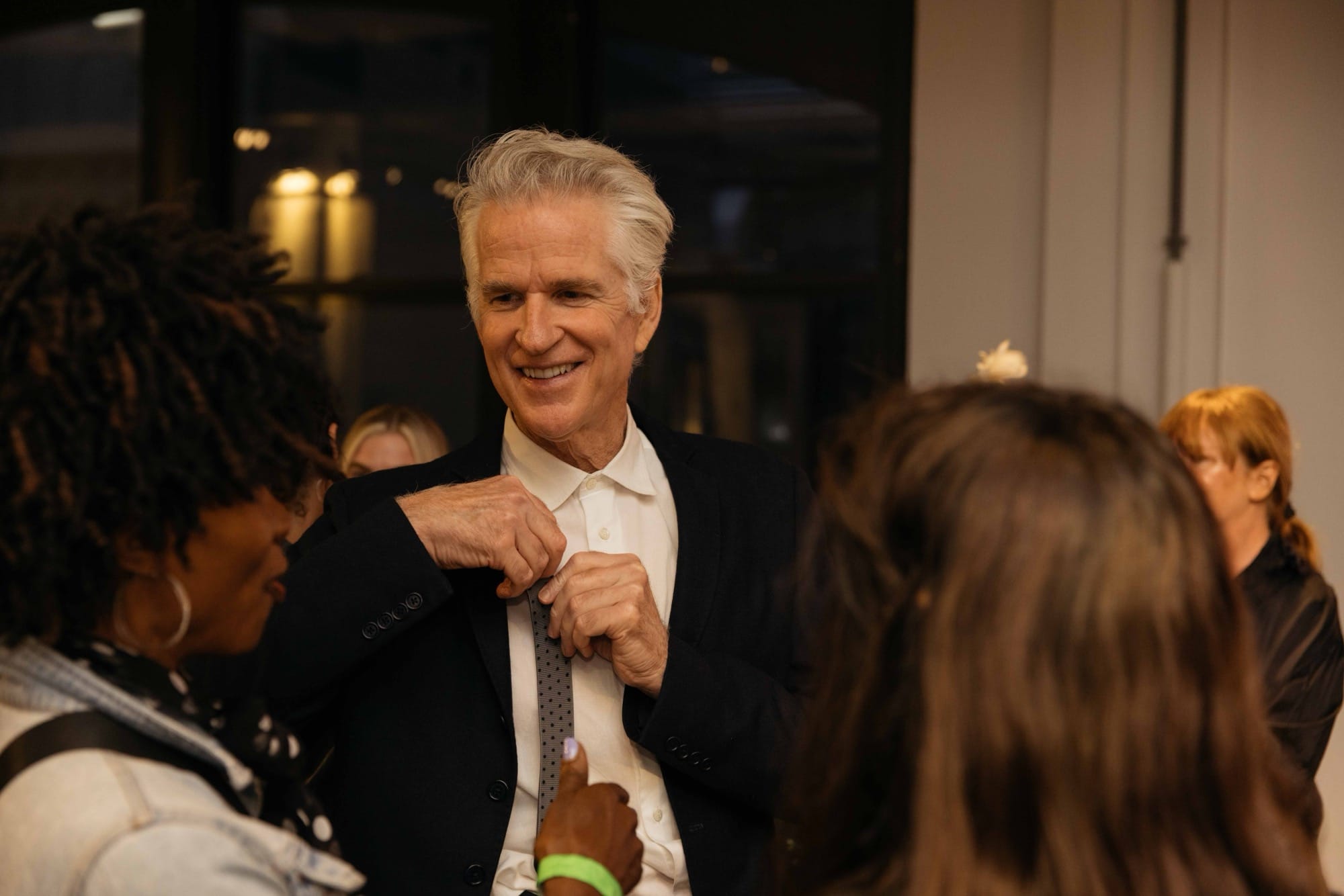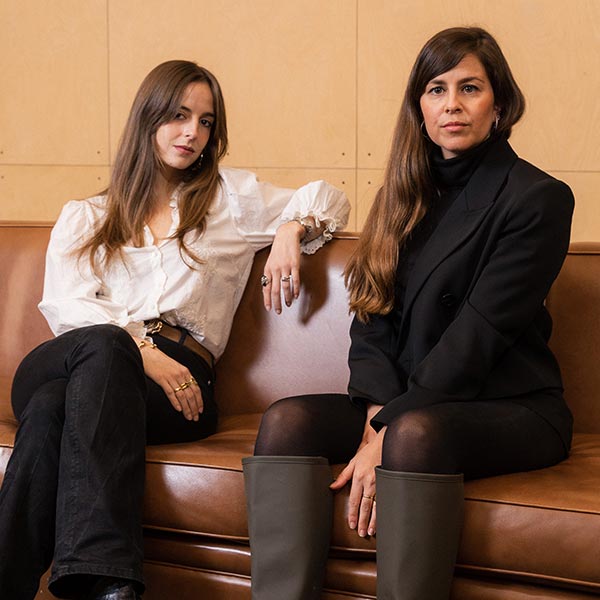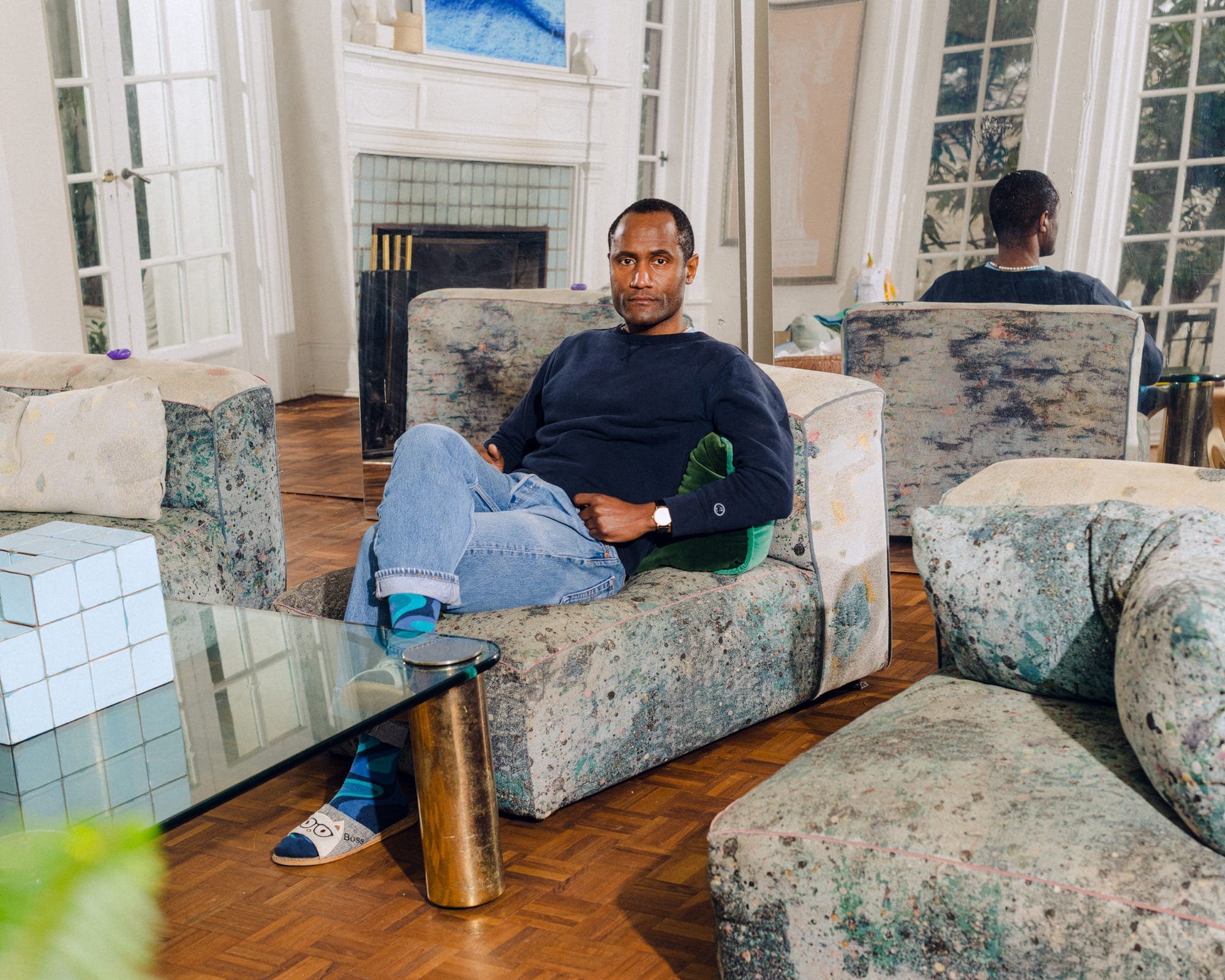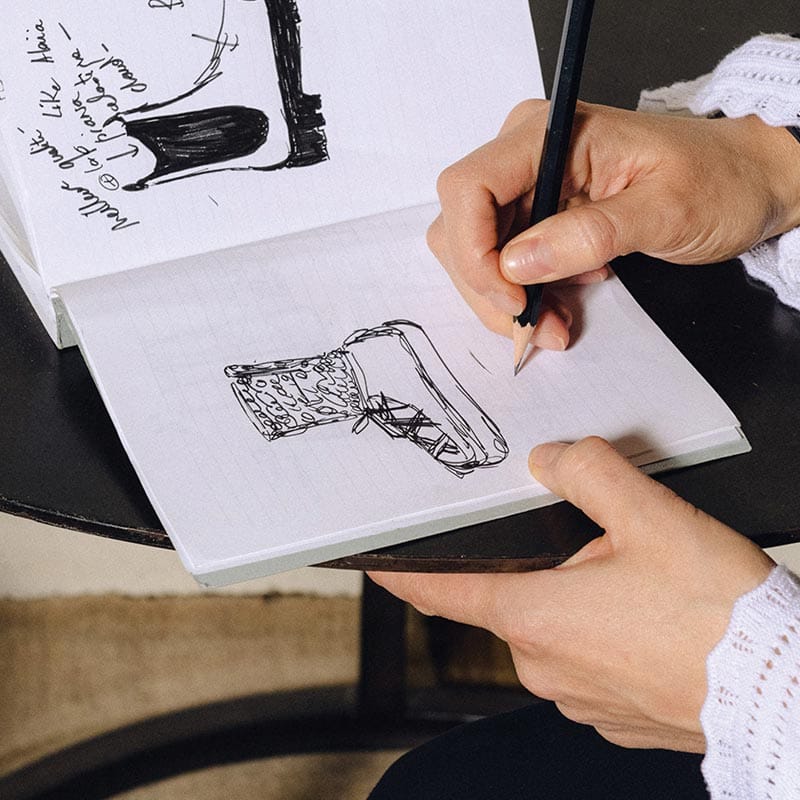Acclaimed actor and filmmaker Matthew Modine (Stranger Things, Full Metal Jacket, and many more) stopped by NeueHouse Madison Square to share stories, insights, and behind-the-scenes, candid photography captured throughout his career. Read an excerpt from his conversation with founding member Oberon Sinclair below.
Oberon Sinclair: Your father owned a drive-in movie theater when you were growing up. Can you tell us a little bit about that?
Matthew Modine: I was born in Loma Linda, California, and we had a drive-in theater called The Cherry Pass — it was surrounded by cherry trees. Then we moved to Imperial Beach where we had the South Bay Drive-In, which was surrounded by watermelons and cantaloupes and tomatoes. It needs to be very dark to project a movie onto a big movie screen outdoor — you don’t want to have competing lights. So we were always away from people. It was a very isolated childhood, surrounded by agriculture.
What that provided me as a young boy was a kind of sensuality of nature that, when you grow up in a place like New York City or Chicago or LA, you don’t experience. And my father was in charge of this thing where people would come and watch movies, and it was magical.
OS: And you worked there, too, didn’t you?
MM: Yes, I had many different jobs. It’s that old expression “the jack of all trades, master of none.” I know how to be an electrician, a little bit of a plumber, I know how to dig ditches, how to pick up garbage, how to clean toilets—you had to be able to do all of those things because we couldn’t afford to have somebody come and do them for us. It was a very important lesson for me about the problems in our lives: sometimes there won’t to be somebody else to clean it up. Sometimes you just have to take the mop and put it in the horror and wring it out and clean up the mess.
Bicycle for a Day, the Bicycle Project in New York City, began out of the idea that if there was one thing you could do to reduce carbon emissions on the planet, what would you do? What could you do in New York City? And I said, ride a bicycle. Like putting a mop in a bucket, it’s solving the problem of the environment through action.
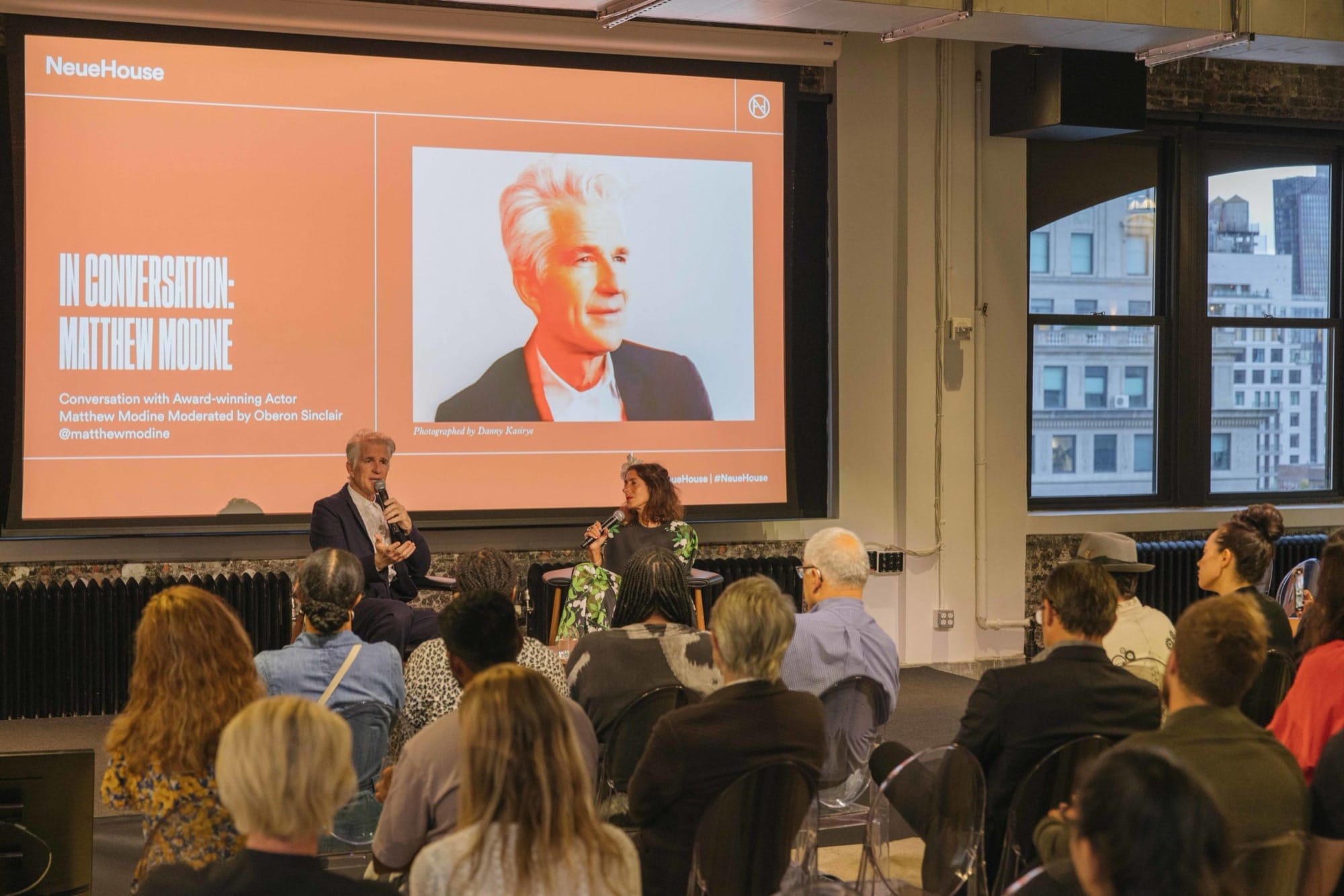
OS: You’ve made so many incredible movies, but I know you had an extraordinary time working with Kubrick on Full Metal Jacket. You took some incredible photographs. I remember a long time ago you telling me he wasn’t sure how to end the movie.
MM: I don’t know that he was ever not sure. [One day on set] Stanley asked me to come to his Winnebago. He started making coffee and he said, “Listen, I have a no-bad-ideas rule. If I make a suggestion and you don’t like it, don’t say, that’s stupid or that wouldn’t work. Say, that’s interesting, let me think about it or what if we tried this? Don’t say something is stupid because then we’re not having a conversation. There are no bad ideas.” I said “That’s a good rule.” Then he said, “Ok, what do you think about the end of the film?” In the original script Private Joker died. I said, “I love the ending. It shows the tragedy of war. It shows the loss of youth. It shows the stupidity of this war, of any war.” And he goes, “OK, well, keep thinking about it.”
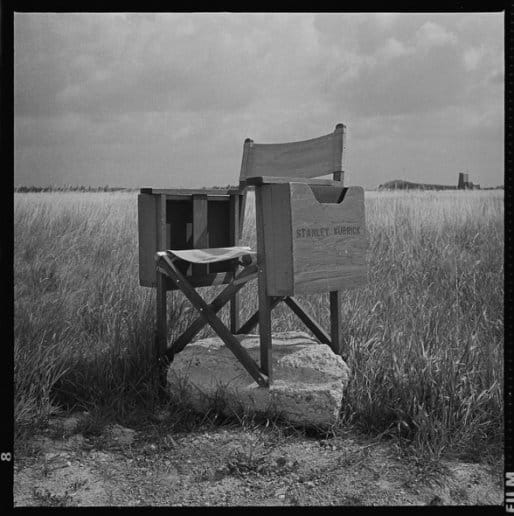
A week would go by, two weeks would go by, and Stanley would say, “Have you been thinking about the ending?” And I’d say, “Yeah, I really love it,” and I’d give another reason why. He’d say, “Keep thinking about it.” One day he invited me back to the trailer and there were three actors [from the cast] inside. I was jealous. I was like, what are these fuckers doing? He’s my director.” And Stanley says, “You know, Matthew, I’ve been asking you for weeks and you always say you like the end of the film. I just asked these three guys and they all have alternative endings.”
[After they shared their endings] I turned to Stanley and said, “Well I guess you could shoot all three of these and then you’d realize how stupid they are and then we’d re-shoot them like we have the rest of the fucking movie.” I couldn’t believe those words had come out of my mouth. I walked out of the trailer and thought, oh my god, I’m gonna be fired. When I got back to set Stanley says, “Come on, I’m ready to shoot, you miserable cunt.” He called me a miserable cunt for weeks. I kept telling jokes, trying to get back in his good graces, but he wasn’t having it. And then one day, he says, “Matthew, have you been thinking about the end of the movie?” I hadn’t been, but I was so tired of him calling me a cunt, that I said, “Yeah, Stanley. I have. He should live.”
“What?”
“Yeah, he should live. He should go through bootcamp and have the guy that he’s trying to help stick an M14 in his mouth and blow his brains out. He should have to stand over a young Vietnamese girl bleeding out, in so much pain that she’s begging him to end her life. And he should take that pistol and shoot her. And he should live. Because that’s the real horror of war. Having to spend the rest of your life with that in your head.” And Stanley leaned into me and said, “That’s the end of the picture.”
OS: That’s an amazing story.
We all want the same things. We want to be able to take care of our children, to provide for our parents, to reduce suffering that exists in the world. It doesn’t make sense in 2022 that — like in Stanley Kubrick’s 2001: A Space Odyssey where early man finds a bone and discovers that he can use that bone to beat another man to death — that we haven’t evolved away from that kind of brutality, that here we are thousands, millions, hundreds of thousands of years later, and we’re still using our lizard brain to solve the problems instead of using Stanley Kubrick’s rule of no bad ideas.
That’s the great thing about movies and television and theater: when we tell stories, we have the opportunity to look at dark places that exist inside of us, inside of others, to see what ugliness looks like, to hear what it sounds like. To bring light into those things is the way to make them go away.
